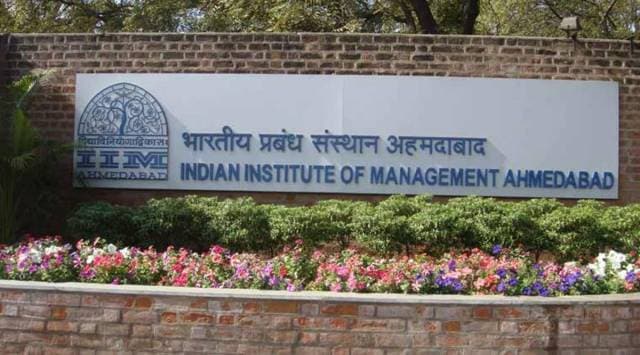- India
- International
Government seeks foot in to make IIMs more easily fall in line
The latest move is significant given that there was a strong difference of opinion within the Government – over autonomy and accountability -- at the time of the drafting of the IIM Act.
 The IIM Act, which came into effect on January 31, 2018, gives sweeping powers to all 20 business schools, including the power to appoint directors, chairpersons, and Board members. (File)
The IIM Act, which came into effect on January 31, 2018, gives sweeping powers to all 20 business schools, including the power to appoint directors, chairpersons, and Board members. (File)In what marks a significant reversal of its earlier stance, the Government is exploring options that could, in effect, erode the autonomy of the Indian Institutes of Management (IIMs).
Almost three years after granting autonomy to the 20 premier business schools under the IIM Act, the Ministry of Education (MoE) is considering a proposal empowering the Government to initiate an inquiry against the Board of Governors (BoG) of an institute if it’s ostensibly found to be acting, what the Government thinks, is in contravention of the Act.
The MoE recently shared a draft executive order with the Law Ministry to this effect and has sought a meeting to discuss the same, The Sunday Express has learned. If okayed by the Law Ministry, the order will be issued under Section 38 of the IIM Act.
Section 38 states, “If any difficulty arises in giving effect to the provisions of this Act, the Central Government may, by order published in the Official Gazette, make such provisions not inconsistent with the provisions of this Act, as may appear to it to be necessary or expedient for removing the difficulty.” The MoE only has a three-year window act under this Section. That window expires on January 31, 2021.
The IIM Act, which came into effect on January 31, 2018, gives sweeping powers to all 20 business schools, including appointment of directors, chairpersons and Board members. Earlier, for instance, the director was appointed by the board but with the prior approval of the Appointments Committee of the Cabinet (ACC) headed by the Prime Minister.

The latest proposal comes amid the current standoff between the Government and IIMs over the one-year MBA degree.
The MoE, in July this year, had red-flagged the one-year executive MBA degree saying that it is “not in accordance with the UGC Regulations”. In other words, the University Grants Commission (UGC) mandates that a Master’s degree should be of two years, and not one and the IIMs, in the Government’s view, violated that provision. In the letter, the premier business schools were directed to “act in conformity with the UGC Act 1956”.
Some of the IIMs had converted their one-year diploma for working professionals into a degree programme after the IIM Act, 2017, allowed degree-granting powers to the 20 business schools. Out of the 20, IIMs in Ahmedabad, Bangalore, Kolkata, Indore, Kozhikode, Lucknow and Udaipur offer the one-year degree for executives.
The IIMs defended the one-year degree to the Government and continue to run the programme.
The MoE is learned to have cited a few other instances — including IIM Rohtak’s attempt at appointing its BoG chairperson by a circular resolution instead of approving the selection in a formal meeting attended by members — to the Law Ministry in its proposal.
The latest move is significant given that there was a strong difference of opinion within the Government – over autonomy and accountability — at the time of the drafting of the IIM Act.
In 2015, while the MoE had advocated retaining government control in the name of ensuring financial and administrative propriety, the Prime Minister’s Office (PMO) had wanted a hands-off approach. The draft law went back and forth for almost a year— from October 2015 to September 2016 — during which the Education Ministry stuck to its guns under Smriti Irani, but yielded after Prakash Javadekar took over in July 2016.
Under Irani, the ministry held at least four discussions with the PMO and wrote three letters — including one from the then higher education secretary VS Oberoi to principal secretary to PM Nripendra Misra — arguing why some of the changes being thrust on it were not feasible.
The PMO, eventually, prevailed. The ministry had to revise its Cabinet Note thrice, with over 10 substantive changes in all, before it was green lit.
In September 2018, Prime Minister Narendra Modi, referring to autonomy to IIMs, had said,“Sarkar kahin nahi aayegi, koi babu aakar nahi baithega (Government will not interfere, no officer will have any role).”
Hailing the IIM Act as a “landmark experiment” related to higher education, the Prime Minister had said the government would take this forward to more institutions. “But I am surprised that this is not being discussed in the country. Intellectuals are silent… those who were advocating autonomy and had been writing about it for 20-25 years would not have imagined it,” the PM had said, adding that these “intellectuals” were silent because they didn’t want the “credit to go to Modi”.
Apr 25: Latest News
- 01
- 02
- 03
- 04
- 05









































